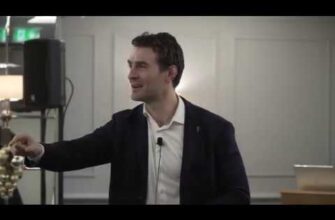In a recent interview Mel Brooks discussed one of the few flops of his career, the 1986 movie Solarbabies. What started as a small $5 million dollar sci-fi movie became a $25 million dollar disaster. There were a multitude of bad decisions that caused Mel to have to take out a second mortgage on his home, sell a few cars, and continuously go back to his financers for additional funds. In the end it took 25 years to break even on this laughably bad film.
When asking how a movie like this could get made by such a genius as Mel Brooks, you can blame the script, the director, or a slew of other choices, but once you’ve diagnosed the issue(s), the real question to ask yourself is, ‘How can I avoid making these mistakes next time?’ Brooks reflected on his Solarbabies lesson:
[At the time] I thought: I’ve got other fish to fry. $5 million? We can do this, we can knock this off. It’s not much… But it was a great lesson. It was like 20-25 years ago, however many years ago, and since then I have been successful because it made me aware of everything that I was doing… I’ve never lost a penny since. I’ve never really failed since. I’ve never broke the bank and took, you know, a billion dollars, but I’ve really done very well ever since. Because it was an incredible lesson in diligence. A lesson in diligence: You must pay attention to the finances of what you’re doing. Not just the artistic. Because, until then, I was only focused on the art of the film—making sure that worked—I didn’t give a s–t about the money… So ever since then, I’ve been diligent and paid a lot of respect to how things are funded; who put money in and how to get their money back, you know?
If you are in the business world, consideration of finances may not seem surprising, but that is a small part of the lesson. The real message is the need for holistic diligence. We must be attentive to the bottom-line in addition to the quality of the product, engagement of customers and employees, marketing, company culture, safety and regulatory standards, and overall industry. To only focus on one or two of these areas will limit your effectiveness as a leader and will stunt the growth of your organization.
Holistic diligence involves getting into the minutiae. For leaders who struggle with the more detail-oriented tasks, here are five things you can do to improve your diligence:
Recognize that diligence is a skill that can be developed. Like any other skill, we can develop our attention through regular practice and training. While you may prefer metacognition and higher-order thinking processes, leadership requires the ability to take charge of attention so we can improve memory, problem solving, decision making, and the ways we incorporate new information.
Develop a system of checks and balances. Utilize the team to double-check your work. Create step-by-step processes and checklists for recurring tasks and prioritize intradepartmental cross-training.
Give yourself time to think. Detail work takes creativity, and creativity often needs time to percolate. Step away from the project so you can see it with fresh eyes. Even if its only subconscious, the idea continues to stir around your brain when you’ve moved on and, once you refocus, it will produce a better result.
Maintain a thorough task management system. Diligence requires organization. Maximize your calendar and to-do lists. Start each day with a plan and revisit it frequently. Prioritize tasks and ensure that your time is spread amount the many facades of your company.
Move around. Sitting still will not improve your ability to focus. Consider doodling, playing with putty, or mindlessly manipulating an object. According to psychologist and author Abigail Levrini, this can “actually free up your mental energy so you can focus a little better.”
Mel Brooks became a more successful moviemaker once he took hold of all aspects of his films and Broadway shows—and he didn’t learn this until after Blazing Saddles and History of the World, Part I. Imagine if he had acquired this knowledge 20 years sooner? We can learn from Brooks’ example. Do not dismiss the smaller ventures as inconsequential. Maintain a big picture view of the project. And, no matter how much someone may beg, do not agree to produce a post-apocalyptic movie about kids who like to play hockey.





